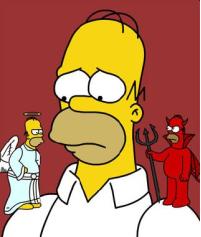There was something people used to say at the Dr Johnson House that I found myself saying sometimes, that we were lucky as a museum to not have to apologise for Samuel Johnson. This phrase usually came up when talking about the relationship of Samuel Johnson and Francis Barber, unlike many museums we didn’t have to apologise for being involved with the slave trade, on the contrary, Johnson was one of the earlier protestors against and left much of his money to someone born a slave.
It’s not the whole story though. The relationship between Johnson and Barber wasn’t always the smoothest, he was overbearing in general, especially to those he cared for and he steered Barber into life paths against his will. What’s more, the house itself is literally built with a consequence of slavery. The floorboards are American red woods which were used as ship’s lumber to weigh it down on the return leg of the triangular trade, probably stacked in the same hold that held the slaves.
Another way we felt we were lucky to have Johnson was his attitude to women’s education. It’s an odd thing, one of his most famous quotes is denigrating a woman preacher, but many of his other actions show a keen support for intelligent women. He helped market women’s writing, regarded Elizabeth Carter as something of a role model, came up with a plan of education for Hester Thrale’s daughter, Queeney. Even his jabs at Scotland fall more into the category of jokey banter than actual invective.
But why do we need our writers and historical figures to be good?
Writers are a famously anti-social bunch of people and many lived incredibly messy lives and held incredibly messy views. Goldsmith was an early abolitionist who wrote under the patronage of the very slave-positive Lord Mayor of Bristol. Smart’s Jubilate Agno is full of misogyny (much of which is being worked through as the text progresses.) Some of the best writers, like the Scriblerans, are essentially writing on ‘the wrong side of history’, upholding the traditional practices of patronage over commercial literature. Essentially, they gate-keep public expression as something for the wealthy and educated.
Boswell does some terrible things, dressing up as a commoner so he can rape a prostitute in front of an audience on Westminster Bridge. Casanova is a seducer, conman and attempted murderer, Smollett used the funds of his wife’s sugar plantation to set himself up a gentleman, Fielding may have groomed his housekeeper, Thomas Day specifically educated a young girl to become the perfect wife… the list goes on.
Just before I fell into my eighteenth century hole, I very nearly fell into a seventeenth century one (a time period I still find very interesting). This was because of another Samuel, Samuel Pepys. I have, and have read, the complete unabridged diary which I read with great pleasure and occasional alarm. He was so open to life, to new ideas and experiences - and he was a complete shit. A creepy, pervy little man who used his position of power to grope as many poor women as possible. The more I’ve become aware of this side of him, the harder he is to read.
Yet, how terrible many of these people are (or more accurately, how terrible some aspects of them are) I still read them. Casanova is a pretty awful person but he is a very entertaining one. In general, I’d prefer to read something about, or by, someone deeply flawed and interesting than someone boring. Not that immorality makes someone interesting, a person who will predictably do the most selfish thing is deeply boring also.
An aspect of Tolstoy’s Anna Karenina that taught me a lesson for writing and life is the way his character’s greatest flaws have the same source as their greatest virtues. Anna’s strong emotional life powers her best and worst moments, as does Karenin’s logical detachment. Similarly, both Pepys and Casanova are powered by their hunger for experience - it leads them to create joyful, expansive visions of life at the same time it leads them to use other people (particularly women) as means to experience new things. (Incidentally, I’m with Kant, people should always be ends in themselves and never means).
One of my favourite books is Arieh Sachs’s Passionate Intelligence. It argues that one of the key themes of Johnson’s writing, and a key drive in his life was the urge to blend the power of imagination (which Johnson saw as inherently selfish) with the steering power of reason (which is universal but a little inert). This blend Sachs calls ‘Passionate Intelligence’. Like most of Johnson’s ideas, it’s not a new one. Plato talked about the driver steering the white and black horses on the same path - the idea of reason being the reins for passion is a common one. Of course, he failed to enact this ideal but he tried, and I think that’s why Dr Johnson’s house is lucky to have him.
Ultimately, worrying about the morality of other people, especially long-dead people is a fruitless endeavour. The only morality we have control over is our own. We need to be aware of who influences us and how. we also need to be open about the flaws of the people we study just as we need to be aware of our own. I’d like the joy and openness of Pepys, the hope of Smart, an awareness of my own absurdity and contradiction like Goldsmith and the passionate intelligence of Johnson - but I have to accept that I am me, with all the benefits and constraints that entails.






